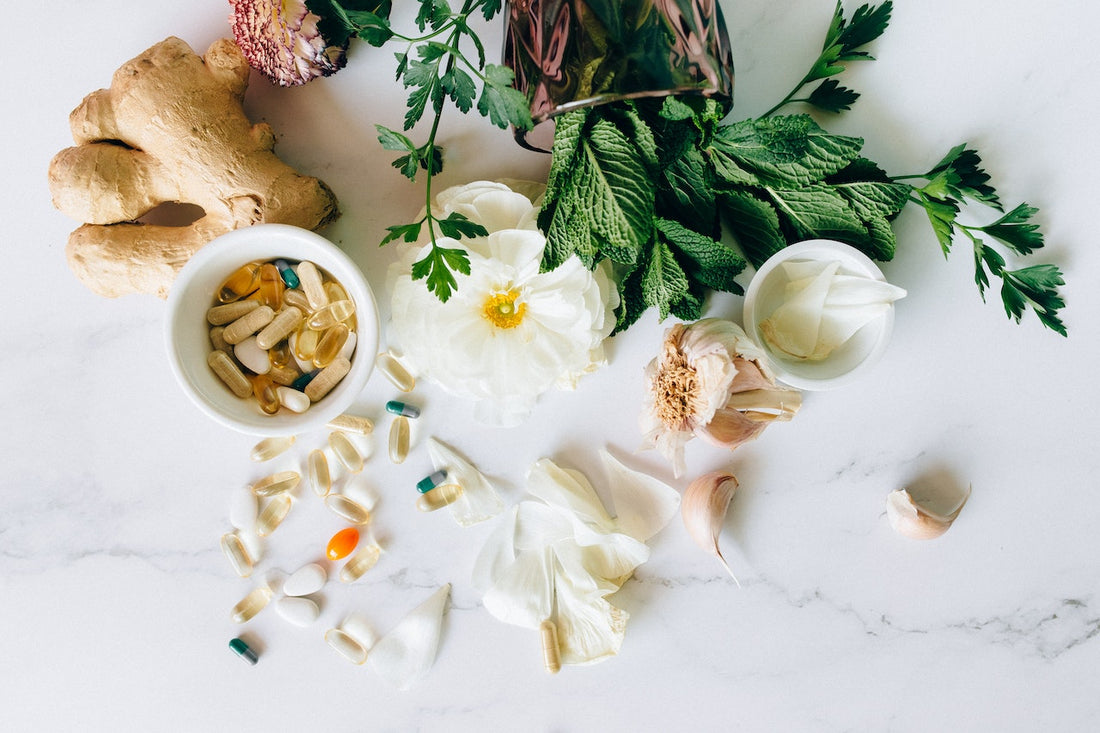
The Power of Herbal Teas: A Guide to Healing Brews
Introduction
Throughout history, the use of herbs for their healing properties has been a cornerstone of traditional medicine practices worldwide. One delightful and effective way to harness the benefits of these herbs is through the preparation of herbal teas. Herbal teas, also known as tisanes, are aromatic and flavorful infusions made from a variety of plant parts, such as leaves, flowers, roots, and seeds. From soothing an upset stomach to promoting relaxation, herbal teas offer a plethora of health benefits. In this comprehensive guide, we'll explore the diverse world of herbal teas and their potential to heal and enhance our well-being.
Understanding Herbal Teas
Herbal teas are distinct from true teas, such as green, black, white, and oolong teas, which are derived from the Camellia sinensis plant. Instead, herbal teas are brewed from an array of botanical ingredients, each offering a unique set of therapeutic properties. These ingredients are often dried or fresh and can be sourced from various parts of the world.
The Healing Brews: A Closer Look
1. Peppermint Tea
Peppermint tea is renowned for its soothing effects on the digestive system. It can relieve indigestion, bloating, and nausea. The menthol in peppermint has a calming effect on the muscles of the gastrointestinal tract, making it a go-to choice for digestive discomfort.
2. Chamomile Tea
Chamomile tea is a well-loved herbal remedy for its calming and sedative properties. It's often consumed before bedtime to promote relaxation and improve sleep quality. Chamomile's anti-inflammatory and antispasmodic qualities also make it beneficial for soothing menstrual cramps and stomachaches.
3. Ginger Tea
Ginger tea is prized for its warming and invigorating nature. It aids in digestion, reduces nausea, and helps alleviate symptoms of the common cold. Ginger contains compounds called gingerols that possess anti-inflammatory and antioxidant effects, contributing to its overall health benefits.
4. Lavender Tea
Lavender isn't just a fragrant flower; it also makes a delightful tea with calming properties. Lavender tea can help reduce anxiety, stress, and restlessness. Its gentle aroma has a soothing effect on the nervous system, making it a wonderful choice for moments of relaxation.
5. Echinacea Tea
Echinacea is often used as an immune-boosting herb. Echinacea tea is believed to enhance the body's defense mechanisms, making it a popular choice during cold and flu season. Regular consumption may contribute to strengthening the immune system.
6. Lemon Balm Tea
Lemon balm tea is a natural mood enhancer. It's known for its ability to reduce anxiety and promote a sense of calm. Lemon balm also has antiviral properties and can aid in digestion, making it a versatile addition to your herbal tea repertoire.
7. Hibiscus Tea
Hibiscus tea is as visually appealing as it is delicious. Rich in antioxidants, hibiscus tea may help lower blood pressure and support heart health. Its vibrant red hue and tangy flavor make it a refreshing choice, whether enjoyed hot or cold.
8. Rooibos Tea
Rooibos tea hails from South Africa and is caffeine-free. It's packed with antioxidants and has anti-inflammatory properties. Rooibos tea is believed to support skin health and may alleviate allergy symptoms.
9. Turmeric Tea
Turmeric's active compound, curcumin, is responsible for its potent anti-inflammatory and antioxidant effects. Turmeric tea can be a soothing way to incorporate this golden spice into your routine. It's believed to support joint health and may have benefits for cognitive function.
10. Peppermint Tea
Nettle tea, derived from the stinging nettle plant, is a nutritional powerhouse. It's rich in vitamins, minerals, and antioxidants. Nettle tea may help alleviate allergies, improve digestion, and support kidney function.
Preparing and Enjoying Herbal Teas
To make a cup of herbal tea, follow these simple steps:
- Boil water and pour it over the dried herbs or tea bag in a cup.
- Cover the cup and let the herbs steep for the recommended time (usually 5-10 minutes).
- Strain or remove the tea bag and enjoy.
For added flavor, you can sweeten your herbal tea with honey or a touch of lemon. Experiment with blending different herbs to create your own personalized healing brews.
Conclusion
Herbal teas offer a delightful and natural way to support our well-being. Each cup of tea holds a unique combination of flavors and healing properties that have been cherished for generations. From calming chamomile to invigorating ginger, the power of herbal teas extends far beyond their taste. By incorporating these healing brews into your daily routine, you can savor the benefits of nature's pharmacy while indulging in moments of comfort and relaxation. So, go ahead, steep a cup of herbal goodness and experience the wonders of holistic wellness.







